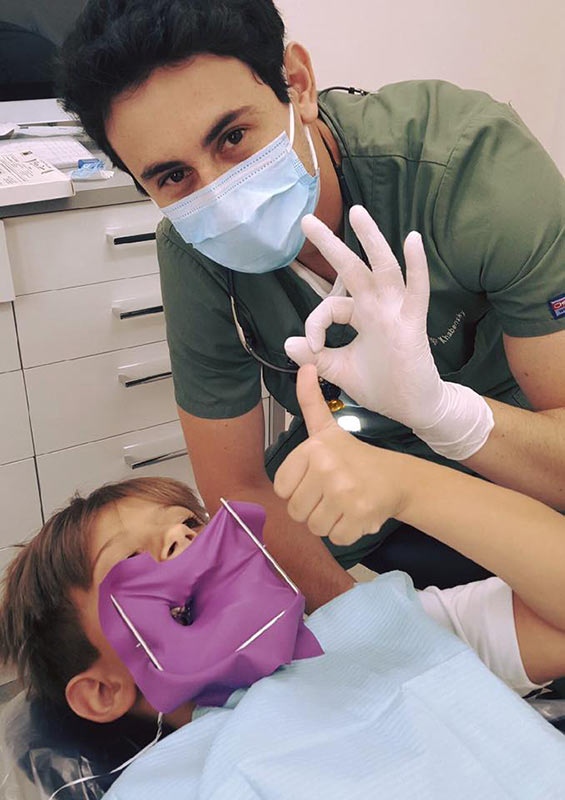Pediatric Dental Emergencies: What Parents Required to Know for Quick and Effective Therapy
In the world of pediatric medical care, dental emergency situations can emerge all of a sudden, leaving moms and dads unsure of exactly how to manage the scenario successfully. By being prepared and educated, moms and dads can play an essential duty in protecting their youngster's oral health.
Indicators of Pediatric Dental Emergencies
When examining pediatric dental emergencies, it is important for parents to be watchful for particular signs showing potential serious concerns. One of the key indications of a dental emergency situation in youngsters is consistent tooth pain that is not reduced by non-prescription pain medications.

Typical Types of Dental Injuries
Usual kinds of oral injuries in kids typically result from accidents or sports-related activities that can lead to numerous forms of trauma to the mouth and teeth. One usual dental injury is a fractured tooth, which can range from a small chip to a more severe break including the internal layers of the tooth. Youngsters may additionally experience dental injuries like tooth breach, where the tooth is pushed into the jawbone, or avulsion, which is the total variation of a tooth from its socket.
Immediate First Aid Actions
Upon coming across a pediatric oral emergency, swift and suitable very first help measures are critical to reduce discomfort and protect against additional issues. For a knocked-out tooth, instruct the kid to delicately rinse the tooth with water, attempting not to touch the origin, and place it back in the outlet preferably. If re-implantation is not practical, store the tooth in a container of milk or the youngster's saliva until reaching the dental expert. In situations of a damaged or cracked tooth, wash the mouth with warm water and use a cold compress to minimize swelling. A bitten lip or tongue should be cleaned gently with water, and a cold compress can help reduce pain and reduce swelling. For objects stuck between teeth, avoid making use of sharp check this devices and rather urge the youngster to delicately floss to displace the thing. In all circumstances, it is crucial to call a pediatric dental practitioner promptly for more analysis and therapy.
When to Look For Expert Help
Looking for prompt oral care from a pediatric specialist is essential in addressing prospective problems arising from pediatric oral emergencies. Moms and dads ought to look for expert help immediately if their youngster experiences serious tooth discomfort, facial swelling, hemorrhaging that does not stop, a knocked-out irreversible tooth, or any type of trauma to the mouth or face. These signs show a major oral problem that requires prompt focus from a pediatric dental professional.
Additionally, if a youngster suffers persistent tooth level of sensitivity to warm or chilly, difficulty chewing or ingesting, or indications of infection such as pus around the gums, parents need to not delay in looking More about the author for professional oral treatment. These symptoms could suggest underlying oral troubles that need to be addressed quickly to avoid more difficulties.
In cases of dental emergency situations, it is critical for moms and dads to contact a pediatric dental professional as quickly as possible to guarantee appropriate medical diagnosis and therapy - children dentist near me. Delaying expert help can lead to exacerbated oral issues and prolonged discomfort for the youngster

Stopping Future Dental Emergency Situations
To decrease the possibility of future oral emergency situations, parents must prioritize constant oral hygiene methods and regular check outs to a pediatric dental professional for preventative care. Urging children to comb their teeth two times a day with fluoride tooth paste and showing them the proper strategy for 2 minutes each time check my source can dramatically lower the risk of oral concerns.
Regular check outs to a pediatric dentist for check-ups and cleanings are crucial for early discovery of any potential oral issues. These appointments permit the dental expert to keep track of the child's dental health, offer professional cleansings to remove plaque and tartar build-up, apply fluoride therapies for added security, and deal support on appropriate dental treatment methods.
Conclusion
To conclude, parents need to understand the signs of pediatric oral emergencies, usual sorts of oral injuries, immediate emergency treatment procedures, and when to look for expert aid. By taking proactive actions to avoid future oral emergency situations, parents can make certain quick and reliable treatment for their kids. It is very important to stay notified and prepared in order to take care of any type of oral emergency situation that may develop.